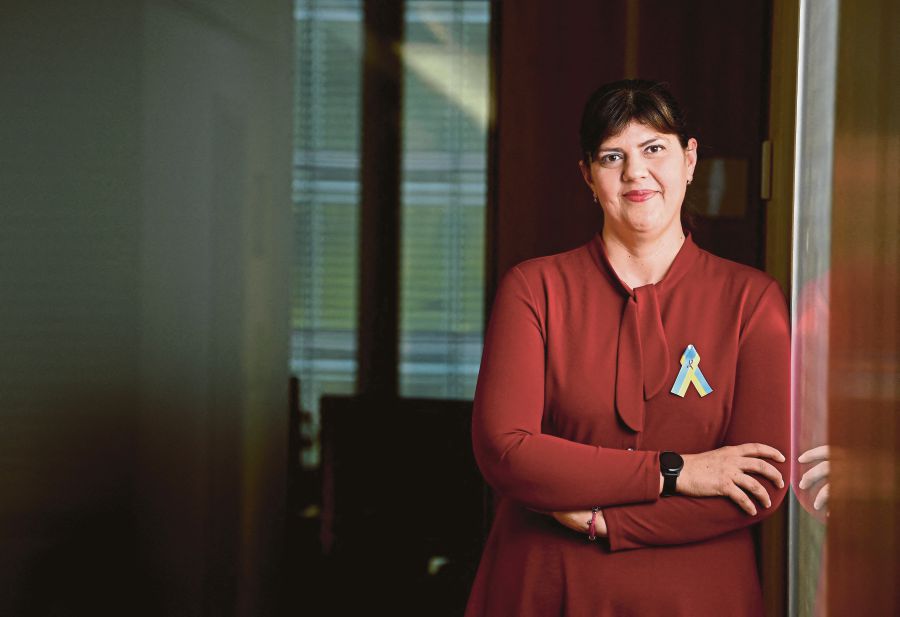Organised criminal groups are switching from riskier drug rackets to fraud in the EU and many don't hesitate to use violence to protect their activities, the bloc's chief prosecutor said.
Laura Kovesi said that value-added tax (VAT) fraud accounted for 59 per cent of the estimated €19 billion in damage to the EU budget arising from cases opened for investigation last year by her European Public Prosecutor's Office (Eppo).
"Behind this fraud, there are a few organised crime groups that operate everywhere in Europe. They are very flexible.
"We have to deal with the most dangerous criminals. And our concern is that if we let them grow, if we let them have more financial power, they can become more violent and they can be a real threat to our security."
Kovesi said this on Thursday, ahead of the release of Eppo's annual report on activities in 2023.
Her relatively new office — it started operating in 2021 — is tasked with investigating and prosecuting fraud involving European Union money.
"In the last period, criminal groups have reshuffled their activity," Kovesi said, moving from "very risky" drug trafficking to "easier" financial crimes, where punishments and the level of detection are lower.
"You need just an accountant, a lawyer or person who knows how to speak, and you can make big money."
The annual report said Eppo opened 1,371 investigations in 2023 — 58 per cent more than in the previous year — representing an estimated damage to the EU budget of €19.2 billion.
Suspected VAT fraud accounted for 339 of those cases. But the estimated budgetary damage to the EU, which draws on VAT payments made in member states, was €11.5 billion of the total
€19 billion lost, underlining
how lucrative it could be to criminals.
The fraud can involve false or incorrect VAT documents to falsify the origins of goods to avoid tax on goods, such as motor vehicles, electronic items, pharmaceutical products, e-bikes and alcohol.
The office also noted a rise in suspected fraud involving €1.8 billion linked to EU money from a Covid-19 recovery fund.
Payouts from the fund only began in 2023 and are set to continue over the next few years.
Eppo's work was not being facilitated by some EU member countries that were minimising or doing away with criminal punishment for financial crimes involving EU money, Kovesi said.
Slovakia, for instance, was seeking to lower the statute of limitations for such crimes to be investigated.
And in Greece and Romania, there were provisions for financial fraudsters to get off the hook just by paying back ill-gotten gains, Kovesi said.
In terms of newly opened investigations in 2023, Italy stood out from the pack, having launched 556 cases, the biggest number among participating countries.
But Kosevi said that was thanks to the country's "very active" Guardia di Finanza police unit that deals with financial crimes.
"We think that in all the member states we should have dedicated police officers to work Eppo cases," Kovesi said, and her office stood ready to give training if needed.
The agency has European prosecutors appointed in 22 of the EU's 27 member countries.
Personnel are due to be appointed to Poland in a few months, once European Commission procedures are completed.
Talks are also underway
to bring Sweden into the Eppo fold.
With Poland about to participate in Eppo and 24 appointed prosecutors in four offices, Kovesi said "this means that we will have a big reinforcement of the Eppo zone".
The Eppo's budget in 2023 was €66 million, and it is set at €72 million for this year.
Denmark and Ireland do not participate in Eppo, having opt-outs from EU justice policy.
Hungary, criticised by Brussels for corruption, refuses to join though it has a working arrangement with the office.
* The writer is from Agence France-Presse





